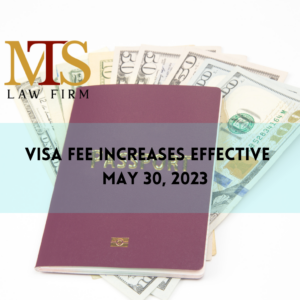Table of Contents
Naturalization and Citizenship
A person may become a U.S. citizen either at birth or after birth, subject to certain requirements.
To become a citizen at birth, a person must have been born in the United States or certain territories or outlying possessions of the United States, and subject to the jurisdiction of the United States; or had a parent or parents who were citizens at the time of his or her birth (if born abroad) and meet other requirements. A person may acquire citizenship after birth through U.S. citizen parents or through naturalization.
We provide the following services relating to citizenship:
- Naturalization
- Application for Certificate of Citizenship
- Application for Citizenship and Issuance of Certificate Under INA Section 322
- Consular Report of Birth
Naturalization and Citizenship
Naturalization is the process by which U.S. citizenship is granted to a lawful permanent resident after meeting the requirements established by Congress in the Immigration and Nationality Act (INA).
The decision to apply for naturalization is one of the most important decisions an immigrant can make. While being a US citizen may have many benefits, it also imposes important responsibilities.
To apply for naturalization, you must file Form N-400, Application for Naturalization. Most naturalization applicants are required to take a test on English and U.S. history and government.
Eligibility requirements for Naturalization
In general, an applicant for naturalization must:
- Be 18 years old or older at the time of filing Form N-400, Application for Naturalization
- Be a lawful permanent resident (have a “Green Card”)
- Demonstrate continuous permanent residence in the United States for at least 5 years. (In some cases, this may be 3 years if you are married to a U.S. citizen.)
- Show that you have been physically present in the United States for 30 months. (In some cases, this may be 18 months if you are married to a U.S. citizen.)
- Show that you have lived for at least 3 months in the state or USCIS district where you claim residence
- Be a person of good moral character;
- Be able to speak, read, write and understand the English language;
- Have and understanding of the fundamentals of the history, and of the principles and form of government, of the United States;
- Demonstrate attachment to the principles of the Constitution and be well-disposed to the good order and happiness of the United States; and,
- Be willing and able to take the Oath of Allegiance.
Exemptions from the general requirements of naturalization
The requirements mentioned above are only the general eligibility requirements for naturalization. There are certain groups of individuals who are covered under the special naturalization provisions. These are:
- Spouses of U.S. citizens may be eligible to apply for naturalization three years after being admitted as lawful permanent residents, rather than the five years prescribed under the general provisions;
- Spouses of U.S. citizens stationed abroad may not be required to meet general residence or physical presence requirements;
- Members of the military who served honorably during certain periods of conflict may be eligible for naturalization even though they have not been admitted as lawful permanent residents and even if they are under the age of 18; or
- Members of the military who served honorably for at least one year, at any time, and apply for naturalization within a certain time after their military service, are also exempt from the general residence and physical presence requirements.
Before applying for naturalization, please keep in mind that
if you have a parent that was a U.S. citizen, either by birth or
naturalization, before you turned 18 years old, you may have a
claim to citizenship. The form to file a claim to U.S. citizenship
is Form N-600, Application for Certificate of Citizenship.
I am a Lawful Permanent Resident for 5 Years
One of the most common paths to U.S. citizenship through naturalization is being a lawful permanent resident (LPR) for at least five years.
Below are the requirements to be eligible for naturalization based on being a LPR for at least five (5) years:
- Be at least 18 years old when you submit Form N-400, Application for Naturalization;
- Show you have been a lawfully admitted permanent resident of the United States for at least five years;
- Demonstrate continuous residence in the United States for at least five years immediately before the date you file Form N-400;
- Show you have been physically present in the United States for at least 30 months out of the five years immediately before the date you file Form N-400;
- Show you have lived for at least three months in a state or USCIS district having jurisdiction over your place of residence. (If you are a student and are financially dependent on your parents, you may apply for naturalization where you go to school or where your family lives.);
- Show that you are a person of good moral character and have been a person of good moral character for at least five years immediately before the date you file Form N-400;
- Demonstrate an attachment to the principles and ideals of the U.S. Constitution;
- Be able to read, write and speak basic English;
- Have knowledge and understanding of the fundamentals of the history, and of the principles and form of government, of the United States, (civics); and
- Take an Oath of Allegiance to the United States.
I am Married to a US Citizen
Another path to US citizenship through naturalization is by being married to a U.S. citizen. Below are the general requirements to be eligible for naturalization based on being married to a U.S. citizen
- Be at least 18 when you submit Form N-400, Application for Naturalization;
- Be a lawfully admitted permanent resident of the United States for at least three years immediately before the date you file Form N-400
- Have been living in marital union with your U.S. citizen spouse during the three years immediately before the date you file your application and while we adjudicate your application;
- Have lived for at least three months in a state or USCIS district having jurisdiction over your place of residence;
- Have continuous residence in the United States as a lawful permanent resident for at least three years immediately before the date you file your application;
- Reside continuously within the United States from the date you filed your application until the date you naturalize
- Be physically present in the United States for at least 18 months out of the three years immediately before the date you file your application;
- Be able to read, write and speak English and have knowledge and understanding of the fundamentals of the history, and of the principles and form of government, of the United States (also known as civics); and
- Be a person of good moral character, attached to the principles of the Constitution of the United States, and well-disposed to the good order and happiness of the United States for at least three years immediately before the date you file Form N-400 and until you take the Oath of Allegiance.
I Served in the Military For At Least 1 Year At Any Time
Any person who has served honorably in the U.S. armed forces for at least one year at any time may be eligible to apply for naturalization. Below are the general requirements to be eligible for naturalization based on military service:
- Be 18 years old or older;
- Have served honorably at any time in the U.S. armed forces for a period or periods totaling at least 1 year
- Have submitted a completed Form N-426, Request for Certification of Military or Naval Service, at the time of filing your N-400, if you are currently serving, or a photocopy of your DD Form 214, Certificate of Release or Discharge from Active Duty, NGB Form 22, National Guard Report of Separation and Record of Service, or other official discharge document for all periods of service if you are not currently serving
- Demonstrate that if separated from service, you were separated under honorable conditions;
- Be a lawful permanent resident at the time of your naturalization interview;
- Meet certain residence and physical presence requirements;
- Demonstrate the ability to read, write and speak English, unless qualified for a waiver or exception;
- Demonstrate knowledge of U.S. history and government, unless excepted;
- Demonstrate good moral character for at least five years before filing your N-400 through the day you naturalize
- Demonstrate an attachment to the principles of the U.S. Constitution and be well disposed to the good order and happiness of the United States during all relevant periods under the law, unless waived
I am a Child of a US Citizen
There are two general ways to obtain citizenship through U.S. citizen parents: (1) at birth, and (2) after birth but before the age of 18.
Definition of a Child
Under existing laws, a child for citizenship and naturalization provision is an unmarried person who is:
- The genetic, legitimated, or adopted son or daughter of a U.S. citizen; or
- The son or daughter of a non-genetic gestational U.S. citizen mother who is recognized by the relevant jurisdiction as the child’s legal parent.
Children of US Citizens Residing Outside the U.S.
Children who were born outside the U.S. but now live in the U.S. may acquire citizenship under Section 320 of the Immigration and Nationality Act (INA)
- The child has at least one parent, including an adoptive parent, who is a U.S. citizen by birth or through naturalization
- The child is under 18 years of age;
- The child is a lawful permanent resident (LPR); and
- The child is residing in the United States in the legal and physical custody of the U.S. citizen parent.
Children of US Citizens Residing Outside the United States
Under Section 322 of the INA, children residing outside of the United States may obtain citizenship. Below are the eligibility requirements for naturalization of a child who regularly resides outside of the United States:
- The child has at least one parent, including an adoptive parent, who is a U.S. citizen by birth or through naturalization;
- The child’s U.S. citizen parent or U.S. citizen grandparent meets certain physical presence requirements in the United States or an outlying possession
- The child is under 18 years of age
- The child is residing outside of the United States in the legal and physical custody of the U.S. citizen parent, or of a person who does not object to the application if the U.S. citizen parent is deceased
- The child is lawfully admitted, physically present, and maintaining a lawful status in the United States at the time the application is approved and the time of naturalization
- List Item
10 Steps to Naturalization
Below are the 10 steps to the naturalization process. It is important to note that these steps only provide a general overview of the naturalization process. Individual circumstances may vary, and additional requirements or steps may apply in certain specific situations.
- Step 1 Determine if you are already a US Citizen
- Step 2. Determine if you are eligible to become US Citizen
- Step 3. Prepare Form N-400, Application for Naturalization
- Step 4. Submit N-400, Pay Fees
- Step 5. Proceed to biometrics appointment, if applicable
- Step 6. Complete the interview
- Step 7. Receive decision from USCIS on Form N-400
- Step 8. Receive notice to take the Oath of Allegiance
- Step 9. Take the Oath of Allegiance to the United States
- Step 10. Understanding US Citizenship
Once you have made your decision to apply for Naturalization, our legal team can represent you in your application for Naturalization and submission of N-400
Application for Certificate of Citizenship
You may request for certificate of citizenship if you claim to be a U.S. citizen based on your birth abroad to a U.S. citizen(s). You must be the biological child of your U.S. citizen parent. To determine if you were born to a U.S. citizen for purposes of claiming U.S. citizenship, USCIS will look at the law that was in effect at the time of your birth.
If you are claiming U.S. citizenship after birth but before you reached the age of 18, you must be under the age of 18 on February 27, 2001 AND you must meet all the following conditions before you turn 18 years of age:
- Your parent must be a U.S. citizen;
- You must be the biological child of that U.S. citizen parent;
- You must be lawfully admitted to the United States for permanent residence; and
- You must be living in the United States in the legal and physical custody of your U.S. citizen parent
The form to request for a Certification of Citizenship is Form N-600, Application for Certificate of Citizenship. Our legal team can represent you in your filing of Application for Certificate of Citizenship or Form N-600
Application for Citizenship and Issuance of Certificate Under INA Section 322
You may acquire U.S. citizenship if you meet ALL of the following criteria to be eligible for citizenship under Section 322 of the Immigration and Nationality Act (INA):
- You are not married;
- USCIS must administer the Oath of Allegiance to you before you reach 18 years of age;
- You regularly reside outside the United States;
- You are in the legal and physical custody of your U.S. citizen parent;
- Your U.S. citizen parent has been physically present in the United States for a period or periods totaling at least 5 years, at least 2 of which were after 14 years of age. If your U.S. citizen parent does not meet this requirement, your U.S. citizen parent’s own U.S. citizen parent (your grandparent) has to have been physically present in the United States for a period or periods totaling 5 years, at least 2 of which were after 14 years of age; AND
- You must be temporarily present in the United States at the time of interview in lawful status pursuant to a lawful admission.
An adopted child may acquire U.S. citizenship under Section 322 only if he or she satisfies the specific provisions of the U.S. immigration laws relating to adopted children. Certain requirements also apply to children of members of the U.S. Armed Forces.
To apply for citizenship and issuance of certificate under Section 322 of the INA, you must file Form N-600K, Application for Citizenship and Issuance of Certificate Under Section 322. Our legal team can help represent you in the filing of Form N-600K or Application for Citizenship and Issuance of Certificate under Section 322
Consular Report of Birth
A U.S. citizen parent may apply for FS-240, Consular Report of Birth Abroad, of his U.S. citizen child under the age of 18 years old who was born abroad and acquired U.S. citizenship at birth. The application is made in person by filing DS-2029, Application for Consular Report of Birth Abroad of a Citizen of the United States, with a U.S. consular officer or consular agent, usually at the consulate nearest the child’s place of birth. The purpose of this form is to establish the child’s U.S. citizen parentage and acquisition of U.S. citizenship at birth.
The FS-240 is proof of U.S. citizenship and can be used to prove citizenship in the same manner as a certificate of naturalization or certificate of citizenship. For instance, the FS-240 can be used as proof of citizenship in applying for a U.S. passport.
Are you ready to take the final step towards U.S. citizenship? MTS Law specializes in providing legal representation for individuals seeking to apply for naturalization.
The naturalization process is a significant milestone, requiring a thorough understanding of the requirements outlined in the Immigration and Nationality Act (INA). Our experienced immigration lawyers possess the knowledge and expertise to guide you through each step of the process.
We understand the importance of U.S. citizenship and are committed to maximizing your chances of a successful outcome.
Contact our law firm today for comprehensive legal representation and guidance in your journey towards becoming a U.S. citizen through the naturalization process.
Disclaimer
The information presented in this section provides a general overview of the naturalization process in the United States. For accurate and up-to-date information tailored to your individual case, we recommend seeking professional assistance from MTS Law. With over 10 years of experience, our team has successfully guided clients through various aspects of immigration law, ensuring the best possible outcomes for their clients. Contact MTS Law today for comprehensive and reliable immigration legal services.
Recognized as the 'Attorney of Celebrities' since 2010
Having been known in the Filipino community for representing well known promoters, and artists, MTS Law has earned the recognition of being the “attorney of celebrities.” For over 13 years, it has been serving its clients with persistence and determination, always ready to take on tough and challenging cases to help Filipino families realize their American dream.
YELP REVIEWS
[wpyelp_usetemplate tid="1"]
Are you pleased with the service we provided? Kindly consider leaving a Yelp Review to help inform others about your experience
Latest News And Updates

Mid City Law Firm for Personal Injury Cases
May 23, 2023
Respectfully announcing the establishment of our new law firm – the Mid City Law Firm. The Mid City Firm is established as a result of

State Department Plans To Launch Program for Domestic Visa Renewal
May 15, 2023
The State Department seeks to launch a pilot program later this year offering visa renewal options in the US for H-1B specialty occupation workers and

Visa Fee Increases Effective May 30, 2023
May 15, 2023
Effective May 30, 2023, the U.S. Department of State will increase certain nonimmigrant visa (NIV) application processing fees globally. The application fee for visitor visas
SCHEDULE A FREE CONSULTATION
Tell us how we can help you
Phone: + 1 (213) 232-3154 (818) 731-2205 Fax: (213) 380-9300
Email: info@mtsangalaw.com
oFFICE ADDRESS: 3600 Wilshire Blvd. Suite 920 Los Angeles, California 90010

